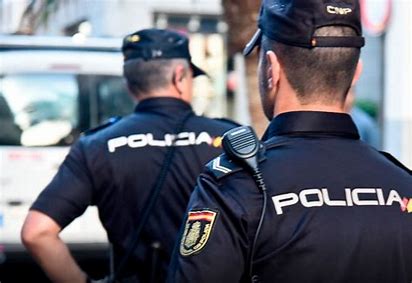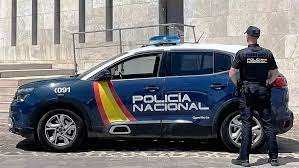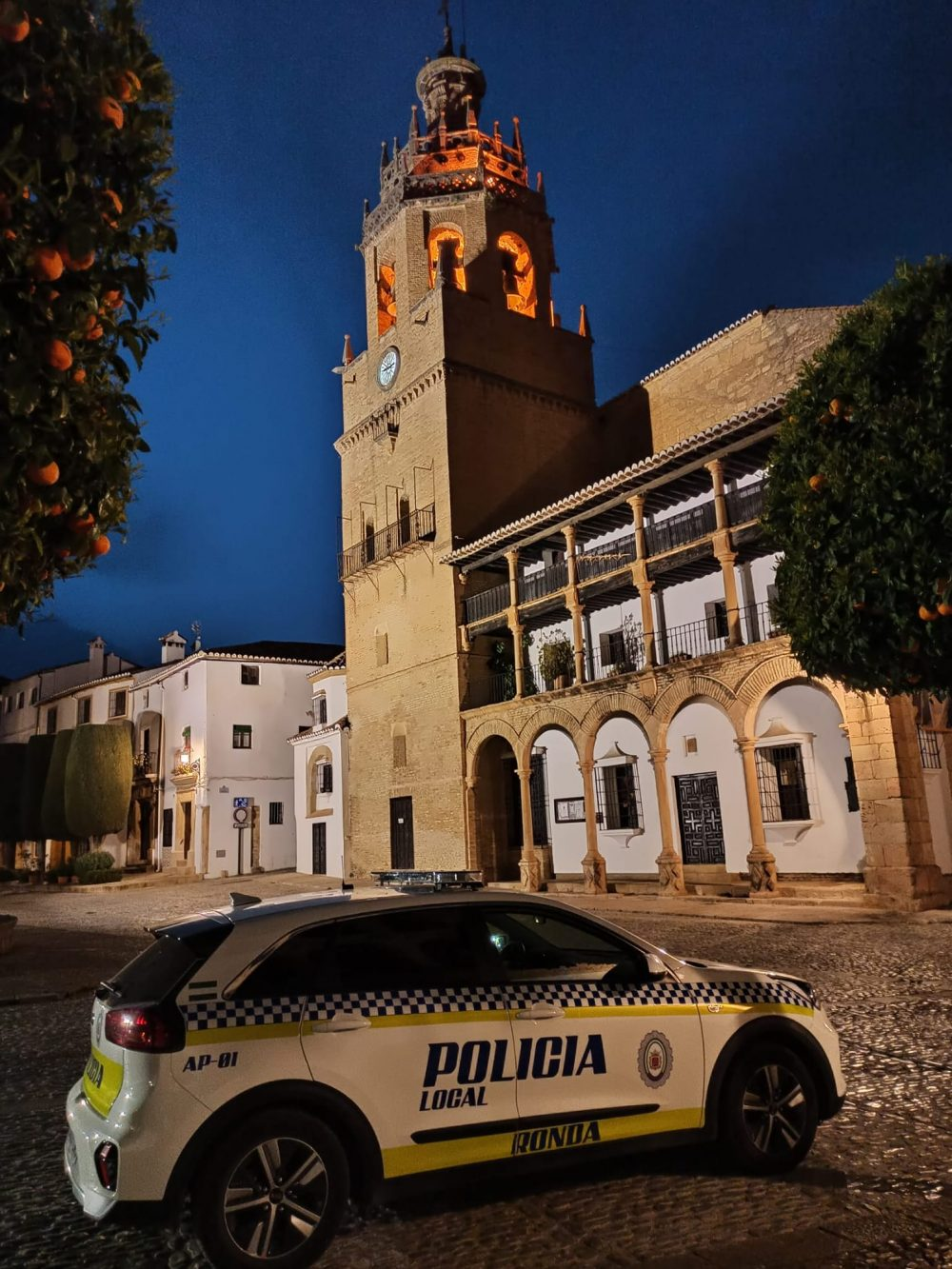POLICE

Paul Whitelock has become a bit of an expert on the Spanish police over the last decade. Since he and his wife Rita moved house nine years ago they’ve had more contact with the three Spanish equivalents of the Old Bill than either would have wished for! What with threatening behaviour, actual bodily harm, damage to property, animal cruelty, hygiene, noise pollution, removal of a dead horse, speeding and parking fines, a lost passport, a stolen purse, a lost wallet and applying for a TIE (Tarjeta de Identidad de Extranjero) he reckons he knows more than most about the way this tripartite system operates.
Having had more than our fair share of issues requiring police attention since we moved from our village to the campo nine years ago, I think I now have a fair idea of how the sometimes confusing police system in Spain works.
Spain has three forces: the Cuerpo Nacional de Policía, run by the Ministry of the Interior (Home Office); the Guardia Civil, a force run on military lines; and the Policía Local, responsible to the local Town Hall.
Policía Nacional

The tall, fit, jackbooted criminal police wear dark blue uniforms and drive around in blue and white cars. Some of them are so young they look like sixth formers on work experience!
Among other things they deal with crime, so for our issues relating to being threatened with violence, actual bodily harm and criminal damage to two cars and our garden gates, this was the police force we needed. Also when I lost my passport, when Rita had her purse stolen twice and when I lost my wallet last month (actually it was stolen) I had to make the denuncia at the Comisaría de Policía.
Their official duties, as regulated by the Organic law 2/1986 of March 13, 1986 are:
- The issuing of identity documents – ID cards and passports;
- To control receipts and outgoings of the foreign people and Spaniards;
- Immigration law, refuge and asylum, extradition and expulsion;
- Gaming enforcement;
- Drug enforcement;
- Collaboration with Interpol and Europol;
- Control of private security companies;
- General law enforcement.
Guardia Civil

The green-clad civil guard has had something of a makeover since Franco’s day, when their officers were nothing short of the dictator’s brutal paramilitary stormtroopers. Nowadays, they are responsible for borders and rural areas. A specialist branch, Seprona, is responsible for the environment and animal welfare, so these were who we turned to when we needed assistance with an issue of severe animal cruelty locally. They also have a Tráfico section, responsible for rural roads.
Today, they are primarily responsible for policing and/or safety regarding the following areas:
- Highway patrol
- Protection of the Royal Family and the King of Spain, military police
- Counter-drugs operations, anti-smuggling operations
- Customs and ports of entry control
- Safety of prisons and safeguarding of prisoners, weapons licenses and arms control
- Security of border areas
- Bomb squad and explosives, security in rural areas
- Anti-terrorism, coast guard
- Police deployments abroad (embassies)
- Intelligence and counter-intelligence gathering, cyber- and internet crime
- Hunting permits and environmental law enforcement
Policía Local / Municipal

This is the local police force, which seems to deal with everything else. From traffic control to parking, from noise pollution control to marshalling at public events, they are also responsible for attending incidents involving other emergency services, such as the Fire Brigade, Ambulance, Mountain Rescue, etc. They even read the electricity and water meters in the villages! I’ve seen them!
Officially, the Policía Municipal, which answers to and is paid for by the Town Hall, performs functions such as:
- Protecting local government authorities, and supervision or custody of their buildings and facilities;
- Managing urban traffic, in accordance with the rules of the road;
- Dealing with traffic accidents within the town;
- Enforcing ordinances, edicts and other municipal regulations;
- Participating in the functions of judicial police in the manner provided in Article 29.2 of the Act
- Providing assistance in cases of accident, disaster or public calamity, and the execution of civil protection plans.
- Carrying out preventive measures against criminal acts;
- Monitoring public spaces and working with the Forces of State Security and the national police to maintain public order in large concentrations of people, when required to do so;
- Assist in the resolution of private disputes when requested to do so.
Confusion
So, all in all, with three forces, all with different roles and responsibilities, it can be pretty confusing for your average citizen, especially if he or she is a foreigner.
In an emergency and if in doubt it’s best to ring the emergency numbers as follows:
112 – police, fire, ambulance (999 equivalent)
091 – Policía Nacional
062 – Guardia Civil
092 – Policía Local
However, just a tip, we’ve discovered that if you ring the local number of the appropriate force rather than the emergency numbers, which go via Madrid or Málaga, the response may well be quicker.
Tags: europol, guardia civil, interpol, local police, national police, police, policia local, policia nacional, seprona, spain, trafico
Spanish Police Check - What are they like?
Saturday, 23 April 2022
Paul Whitelock has had dealings with all three Spanish police forces over the years. Here is his assessment of their relative strengths and weaknesses and their level of ‘niceness’ or charm.

I was stopped by the tráfico section of the Guardia Civil on my way into Ronda the other day. Not sure what I’d done, but they asked me for my car documents anyway and my ID.
While one of them was checking me out on his handheld computer, his colleague asked me if I had a police record.
Without hesitation, I replied: “Yes, sir, several in fact. ‘Walking on the Moon’, ‘Roxanne’, ‘Message in a Bottle’ …”
Three police forces
There are three different police bodies in Spain, which I have written about in detail previously.
Each force has its own responsibilities, but there is sometimes an overlap, which is confusing for Spaniards as well as foreigners.
Which one do you go to to report a crime, for example? Depends on whether the crime took place in the town or in the country.
Guardia Civil

These were the, at that time, dreaded Guardia Civil, General Franco’s ‘stormtroopers’. They had a reputation for fierceness and brutality and for being uncompromising.
Their patent-leather tricorn hats were a symbol of these quasi-military types and they struck fear into the hearts and minds of the locals, especially in the Basque country where Franco was ‘waging war’ on the Basque identity and their language euskera, which was prohibited.
In San Sebastián every August there was a machine-gun-toting guardia civil on every street corner. General Franco liked to spend his summer hols in the elegant Basque resort and the security had to be tight.
Franco died in November 1975 and the process of Spain becoming a parliamentary democracy began in earnest, aided and abetted by Franco’s nominated heir as head of state, King Juan Carlos I.
Policía Local
Back then if they caught you parked wrongly, they’d just ask you to move on.
Policía Nacional

Police check
So, in conclusion, my rank order of ‘niceness’ is:
and a distant 3rd – Policía Local.
And, guess which force earns the most?



